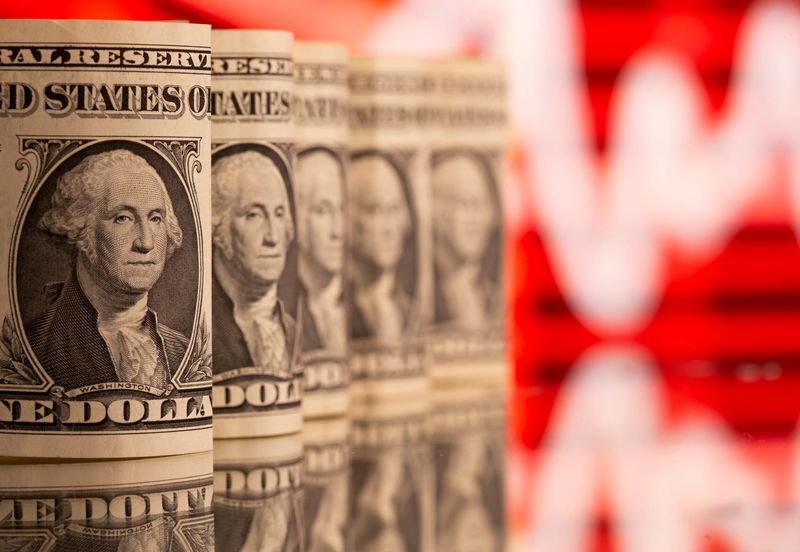By Saqib Iqbal Ahmed and Laura Matthews
NEW YORK (Reuters) – Corporate treasurers are ramping up efforts to guard company earnings against more dollar (DX=F) strength, a move that some analysts said points to increased conviction that President Donald Trump’s tariff plans will help keep the U.S. currency higher for longer.
The U.S. dollar index is about 7% above its September lows, hovering close to a two-year high reached in January as investors bought the buck on expectations it would benefit from sturdy U.S. economic growth and Trump’s protectionist trade policies.
Speculators have loaded up on bullish bets on the currency, driving up net long dollar position to as high as $35 billion, the largest in nearly nine years.
Corporate treasurers, who often use forward contracts, currency options and swaps to reduce potential losses from currency fluctuations, typically move at a more staid pace. But they are increasingly coming around to the view that the dollar can power higher or linger at these lofty levels for a while.
“The corporate community is slower to act and more deliberate,” Paula Comings, head of foreign-exchange sales at U.S. Bank.
“(But) we’ve seen those who have significant exposure from revenues overseas that they need to repatriate, adding to these forecasted cash flow hedging programs,” she said.
“What we’re hearing from clients is that they are planning for a perseverance of the dollar,” Comings said.
Multinational companies such as Apple (AAPL) and Microsoft (MSFT) already have warned the strong dollar stands to pressure financial results in the coming months.
While there is little visibility into the aggregate level of corporate hedging activity, interviews with market participants show the impetus to protect against further dollar strength kicked into high gear ahead of the November U.S. election and in anticipation of Trump’s potential victory.
“Leading up to the election, our research showed that North American firms below $100 million-market cap were acutely aware of the likelihood, as well as the risks, of a strong dollar after the nation went to the polls,” said Eric Huttman, CEO of MillTechFX.
“Half of these smaller firms reported that they were concerned about the impact of policy changes on currency values,” he said.
Foreign exchange markets’ vulnerability to volatility came to the fore this week as threats of U.S. tariffs against Mexico, Canada and China prompted a rally on the dollar and sparked a surge in volatility.

